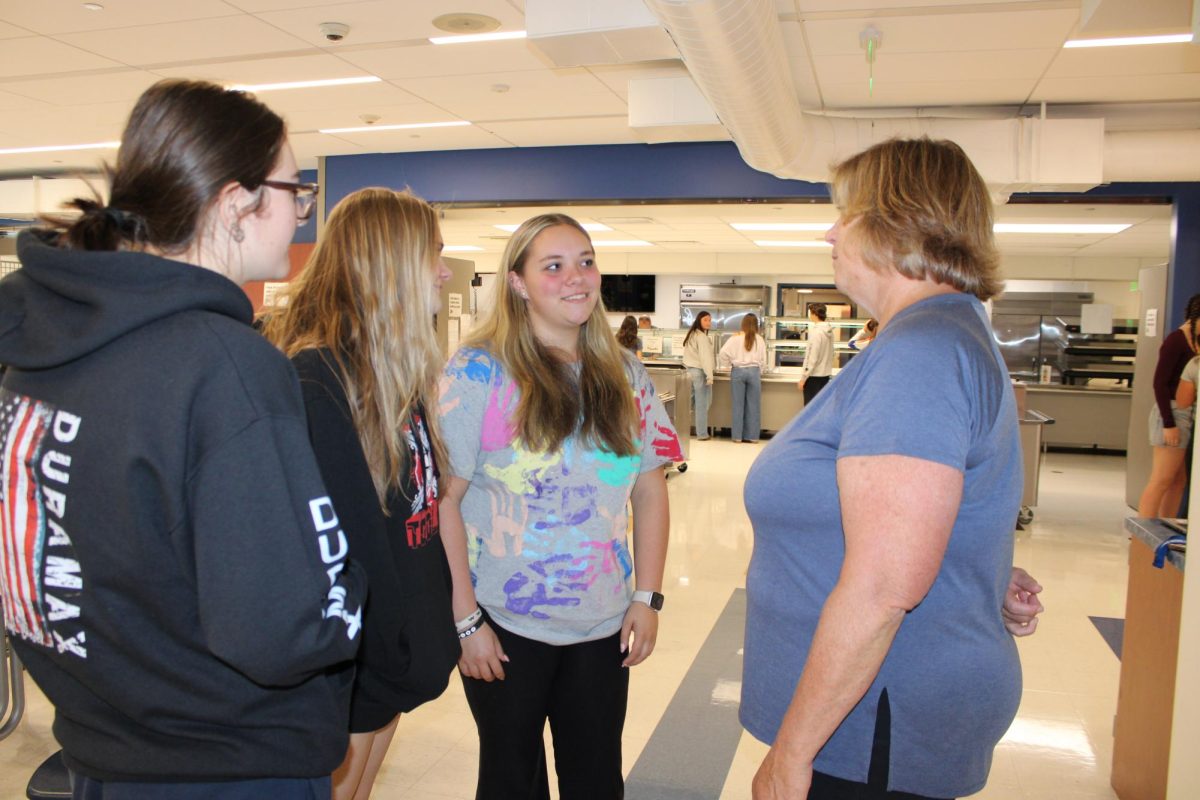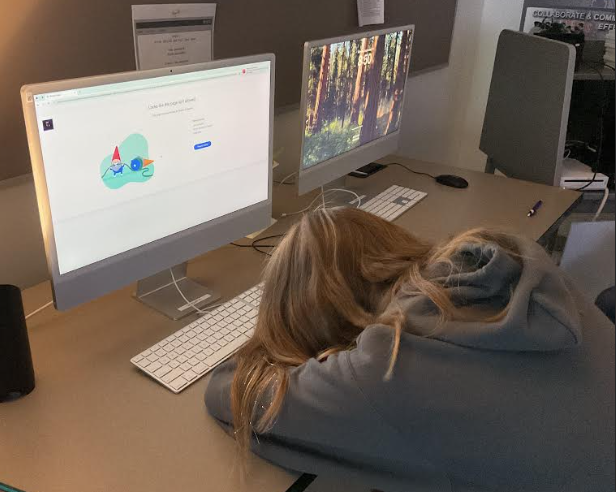WOODBURY — It’s that time of year again — the time AP students look forward to the most: AP testing. With this, it brings the refreshing feeling of no bells. For these two weeks, the halls at Nonnewaug will not hear a single bell so that AP testing isn’t disrupted.
Many teachers and students face the struggle of being late to classes or working beyond the class period. Both have to keep close eyes on the clocks, which can be difficult at times.
“A kid can file a complaint and can issue it if they believe the testing environment was not conducive to testing,” assistant principal Nicole Lewis said regarding the rationale for no bells during AP testing week. “[Disruptions like bells] can invalidate that [student’s scores] or the entire room’s scores and make the school re-administer that test, so most schools err on that side of testing and turn off bells during AP testing.”
Teachers in the agriscience building see more difficulty as some use the bells almost as alarms. Going along with the no bells, it’s especially difficult for the junior-senior ag production class as one of their goats just had baby kids.
“Because I’m always on the go, I use the bells as sort of my alarm to know what time it is,” says Katie Gorman, the NHS agricultural production instructor. “So now that I’m on a bottle feeding schedule and because I don’t keep my phone on me, or I don’t have to sit there and look at the clock, there are some areas in the building where I’m not here, like in the fields, I don’t have a phone and I don’t have a clock. If I’m trying to keep track of a bottle feeding schedule that is very much down to a five-minute difference to where it can cause gas and health problems, then it becomes a struggle when I rely on the bells and the bells aren’t there.”
The confusion due to the lack of bells doesn’t only apply to the ag building but to all academic teachers.
This is especially true for instructors who teach hands-on learning courses. Some teachers find their own little way around the two weeks without bells.
“What I do is I set an alarm on my phone 15 minutes before class ends,” says John Dominello, NHS culinary arts teacher. “I leave my phone on my desk, so when the alarm goes off I can reset it in a snooze mode on my watch so that I live by the same rules as what the students live by.”
In lab courses like Dominello’s, timing is everything.
“Now timing is important in every class,” Dominello adds, “but especially for us because we have to get cleaned up. I always set it 15 minutes before, then at that 15-minute point, I know that no matter where we are, we have to clean up.”
With no bells, it’s confusing when students need to leave. Some might leave early, while others will be late to the next class.
“A lot of teachers are getting mad because students are either leaving early or coming into a class early because they originally left that class early,” says Arin Morales, a sophomore at NHS. “So it’s really messing with the teachers and students, but it’s pretty confusing.”
Losing track of time without bells might be a symptom of good teaching, illustrating how NHS students are enveloped in their learning.
“My kids get focused on what we are doing with the goats, and the bell is usually when I need to go,” Gorman adds. “I have some issues with students being like, ‘Oh my God, it’s time to go,’ and we don’t realize it. Ag is so fast-paced and fast-moving that we don’t always look at the time. So when the bells aren’t there, it’s hard to manage that time when there’s so much going on around you.”











